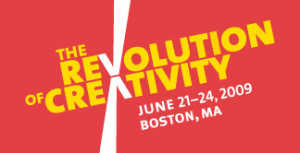Not my Problem
She stands expectantly at the kitchen island. “I’m thirsty,” she says, regressing by at least three years using her baby voice. I tell Buddy-roo how I’m sorry to hear about it, cuz geez, I’ve been thirsty before and I know how uncomfortable that can be.
“But I’m really thirsty,” she says it again, adding a whine. I tell her it sounds like a serious problem she’s got on her hands.
“Yeah,” she answers, waiting for me to offer her a drink. But I don’t.
When somebody tells you their problem, it can feel like they’ve tossed a bowling ball in your lap. There’s a weight to it, an expectation that by telling you, they’ve somehow handed it off, and you’ll do some thinking on it and put things right. Some people are better than others at deflecting this. (I also know people who have radars so ill-attuned that it doesn’t even occur to them to step in and offer a solution.) Most mothers, I would argue, given our instinctive and learned propensity to be of help, may go too far in the let-me-fix-it-for-you department.
This is what I’m trying to avoid.
A problem, simply stated, is just a complaint. But if you phrase it as an open-ended question, its nature changes immediately. It becomes a quest for solutions, or request for help. I think it’s a more productive way to look at problems, and a more responsible way to invite other people to help you solve them.
Anybody who’s been in one of my workshops or meetings has heard me say this: “How might you put that in the form of a question?” Short-pants and Buddy-roo have heard it ad nauseam, too, and yet – as this thirst incident demonstrates – they still need reminders.
“What’s the question you mean to ask me?” I say to Buddy-roo. A look of recognition on her face, it all comes back to her now. “May I have some apple juice… please?” (At least she adds the magic word without being prompted.)

I’d like to take credit for this little nugget of wisdom, but I can’t. It’s something I picked up while attending CPSI, the Creative Problem Solving Institute, a conference about creativity.
Until I went to CPSI, I thought of creativity as something uncontrollable, some unbridled spark that comes or doesn’t come, related to an innate, natural talent. What I learned at CPSI is that everyone is, in some way, creative – and that we can be creative on command if necessary, by using a creative process to enhance or disrupt habitual thinking. CPSI was my introduction to deliberate creativity.
If this is all sounding a bit like an advertisement for CPSI, well, it is. Today is a CPSI blog party and I’ve joined a few colleagues to help get the word out about the conference, coming up in Boston, on June 21-24. Check out what other CPSI friends and fans are saying:
New & Improved
Segami
Gregg Fraley
Innosight
Filed Under Missylaneous
The Artist Within
Pablo Muños Román
I attended my first CPSI twenty years ago – and for many years it was an event I wouldn’t think of missing. Now, with school-aged kids, it’s harder to manage the trip to the states every June. So unfortunately, I won’t be at CPSI this year. (I did get to go to CREA, a European spin-off of CPSI, in April.) But here’s a really good reason to consider signing up for CPSI in June: if you go, you’ll get to see De-facto!
I’ve learned a lot from going to CPSI, but one of the most powerful take-aways, for me, was this idea of re-phrasing problems as questions. Instead of “I’m thirsty,” it’s “how might I get a drink?” Instead of “I don’t have any work,” it becomes “how might I find new jobs?” or “how to get more work from current clients?” or “how might I enjoy the newly-found free time I have as a result of having less work?” What ends up happening is that you realize there are a number of questions embedded in any given problem, and answering one of them that you hadn’t thought about before might actually solve the damn thing.
Of all the crappy wisdom I try to shove down my daughters’ throats, I hope that this is one thing they’ll remember. Well, and then there’s always this, phrased – of course – as a question: in what ways might you be sure to wear clean underwear just in case you’re in an accident and you end up at the hospital?